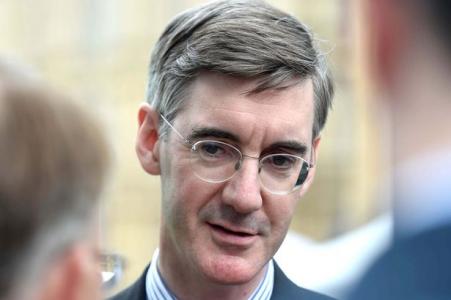Jacob Rees-Mogg is a colourful if somewhat eccentric member of the British Conservative Party. While still a backbencher and just seven years in the House of Commons, Mr Rees-Mogg is being tipped by some as a potential future Prime Minister. This would be quite something, since he would become Britain’s first Catholic Prime Minister. Unlike Tony Blair, who became Catholic after leaving office as Prime Minister, Rees-Mogg was raised Catholic, the son of William Rees-Mogg, the last Catholic to be refused an education in Eton because of his religion.
He’s an unlikely media star, but his willingness to be interviewed on any subject and appetite to appear on virtually any programme has made him a favoured guest with both producers and the general public. He was recently interviewed by the firebrand left-wing activist Owen Jones and, despite the men’s obvious diametric differences, Mr Jones seemed genuinely charmed by Mr Rees-Mogg.
Commitment
The Member for North East Somerset – as he is known in the House of Commons – has never shied away from the fact that he is a card-carrying Catholic. And, in fact, he has won praise for his staunch commitment to Catholic values. I say commitment rather than defence or articulation, since Mr Rees-Mogg rarely – if ever – feels the need to give any reason for the religious convictions he holds.
Many Catholic leaders praised him recently after an appearance on a British daytime ‘chat show’ when he said he was both opposed to same-sex marriage and abortion in all circumstances. The Bishop of Shrewsbury Mark Davies opined that “we should all be grateful for the integrity of politicians like Jacob Rees-Mogg who fearlessly speak of those Christian convictions on which our society was built”.
No argument with that, and Mr Rees-Mogg faced a fierce and often anti-Catholic backlash from commentators for daring to state what the Catholic Church teaches.
Writing in The Guardian, columnist Suzanne Moore called Mr Rees-Mogg a “thoroughly modern, neoconservative bigot” adding that his Catholic views have “no place in public life”. And there was much more in this vein.
Anti-Catholicism, it would seem, is indeed Britain’s last acceptable prejudice.
Mr Rees-Mogg deserves much praise for wearing his Catholicism on his sleeve. But, there’s sometimes a touch of “because the Church says so” in how he articulates the Faith.
In the ITV interview, for example, when asked about same-sex marriage, he replied: “I’m a Catholic and I take the teachings of the Church seriously on faith and morals.”
When asked directly if he opposed same-sex marriage he replied: “I support the teaching of the Catholic Church.”
He was at pains to point out that a core tenet of Christianity is that he does not sit in judgement over others. The presenters were incredulous, as if they were flabbergasted that a Catholic actually believes the teaching of the Church.
It’s a pity that Mr Rees-Mogg didn’t articulate the ‘why’ of Catholic opposition to same-sex marriage. There’s also the fact that there are prefectly good lay non-religious reasons for opposing both same-sex marriage and abortion.
If Catholics want to occupy the public square, they have to become articulate about the reasons the Church teaches what it does. They also need to be comfortable articulating views on public policy that are drawn from reason as well as faith.
Catholics must, as St Peter writes, always be prepared to give reason for the hope that is within them. “Because the Church says so” might have seemed like an answer for another generation (it wasn’t), but it doesn’t cut any ice now.


 Michael Kelly
Michael Kelly
